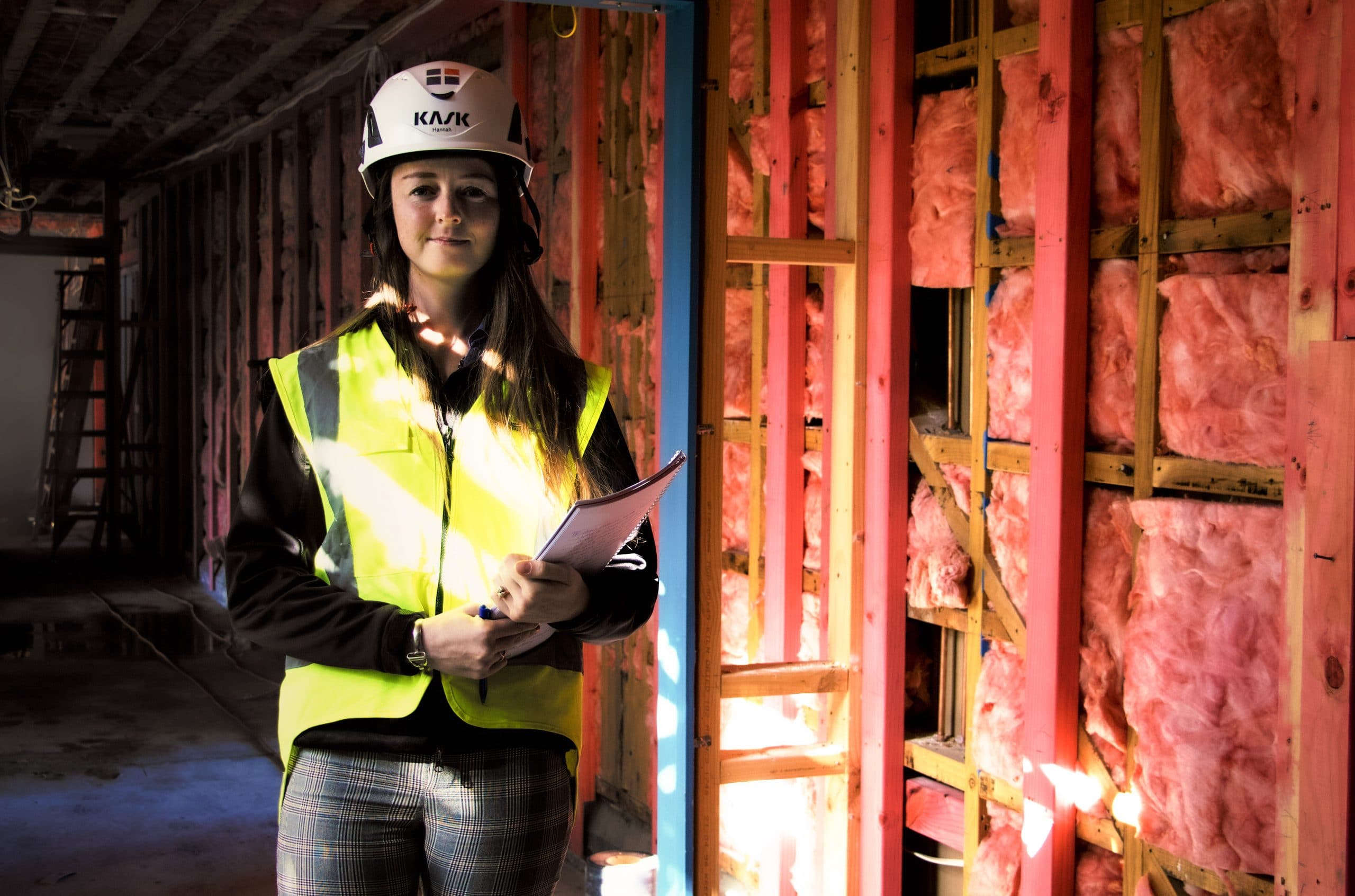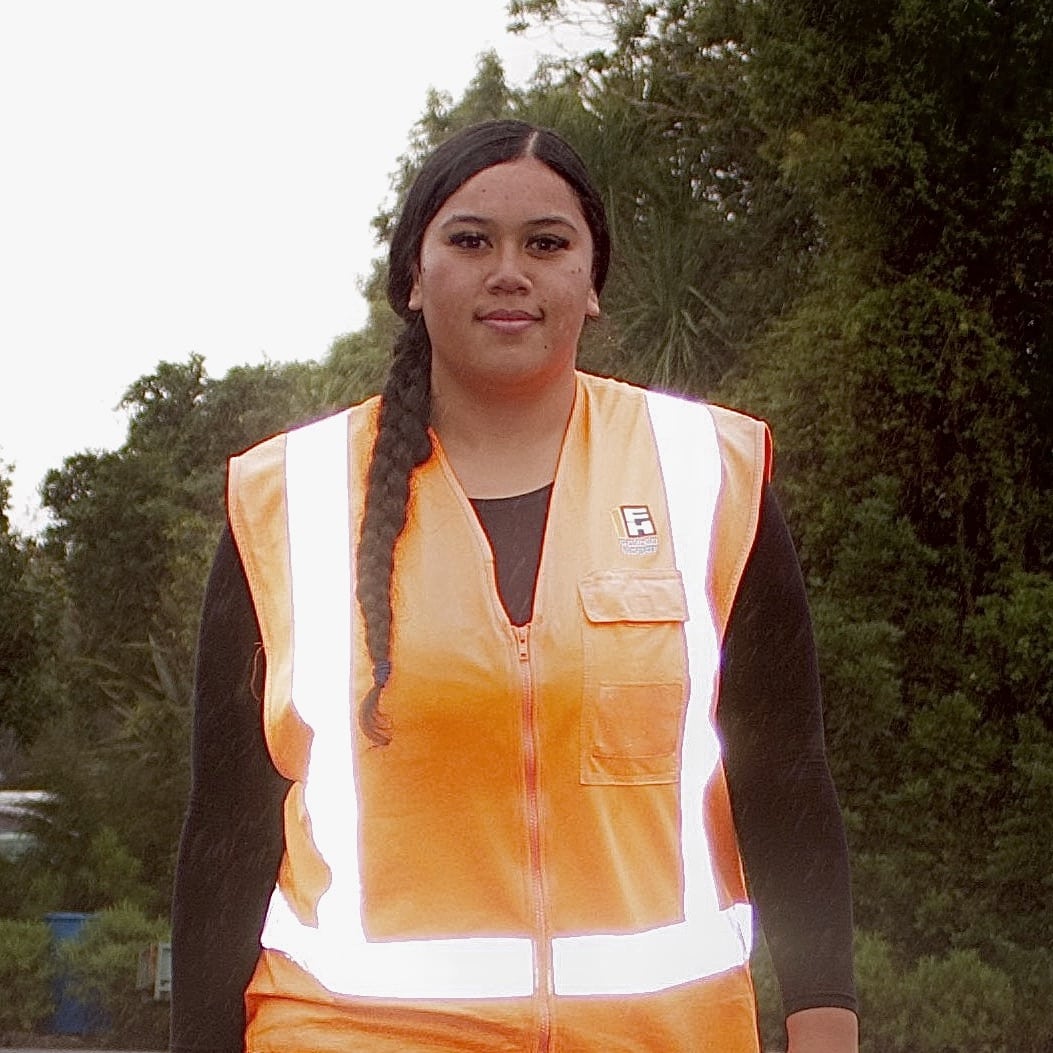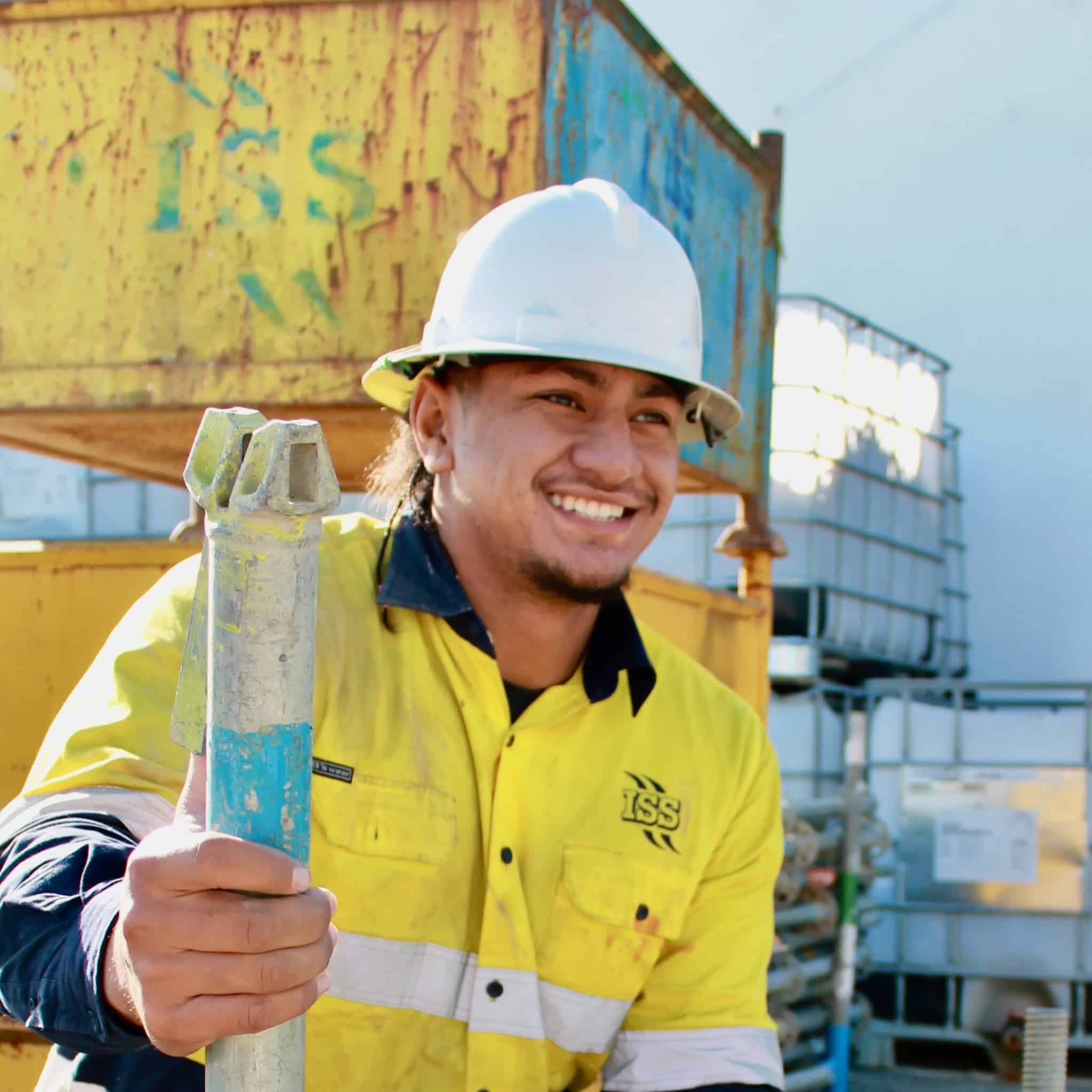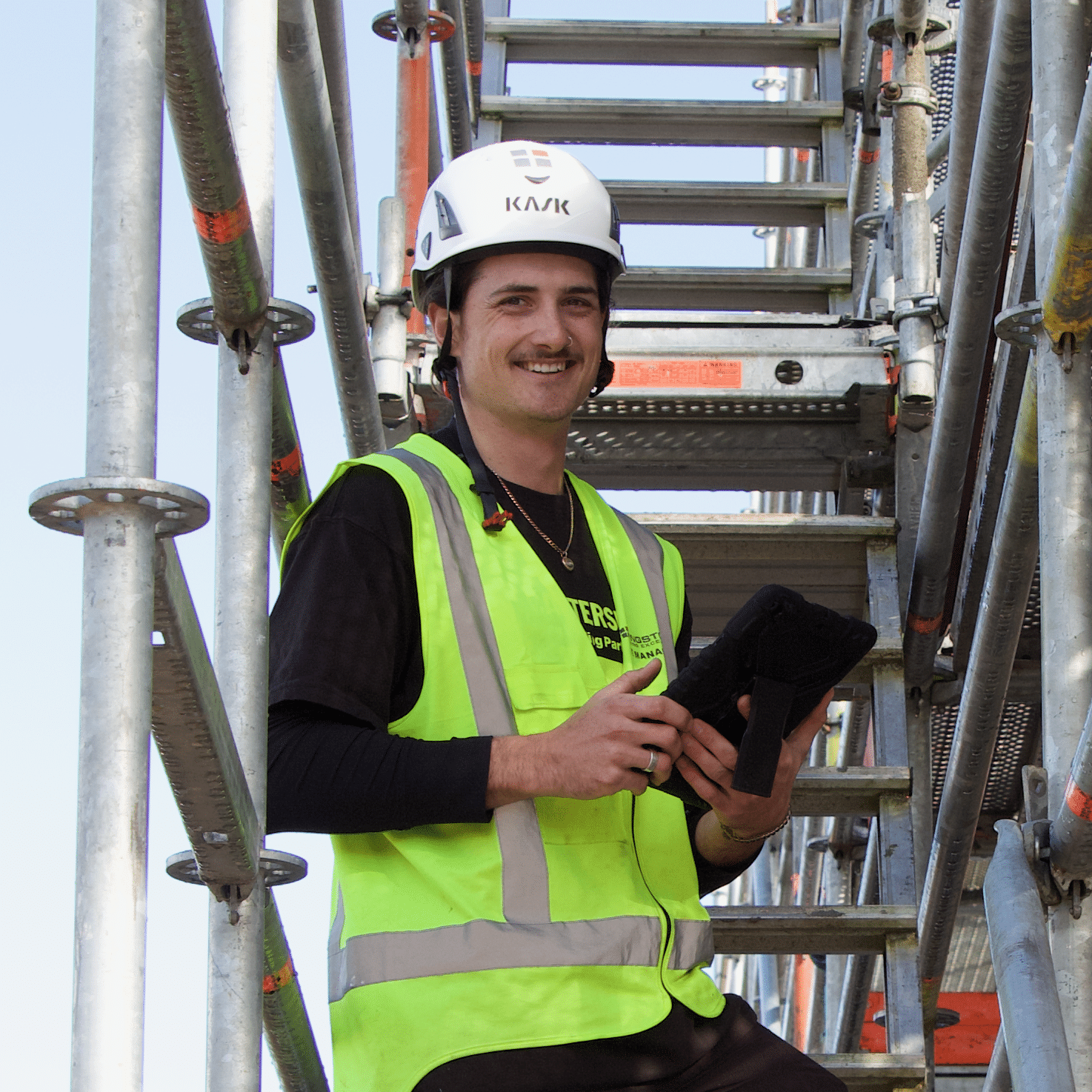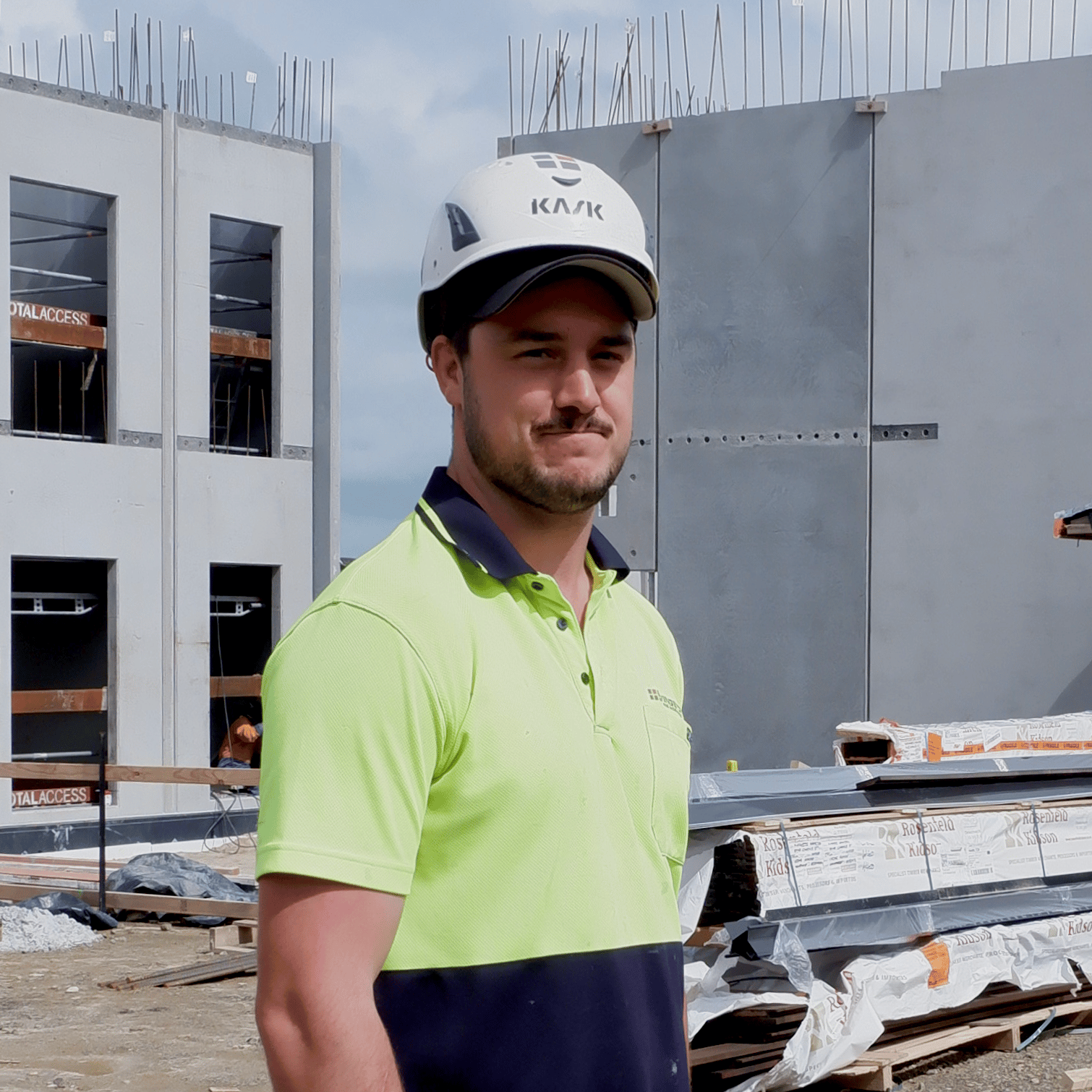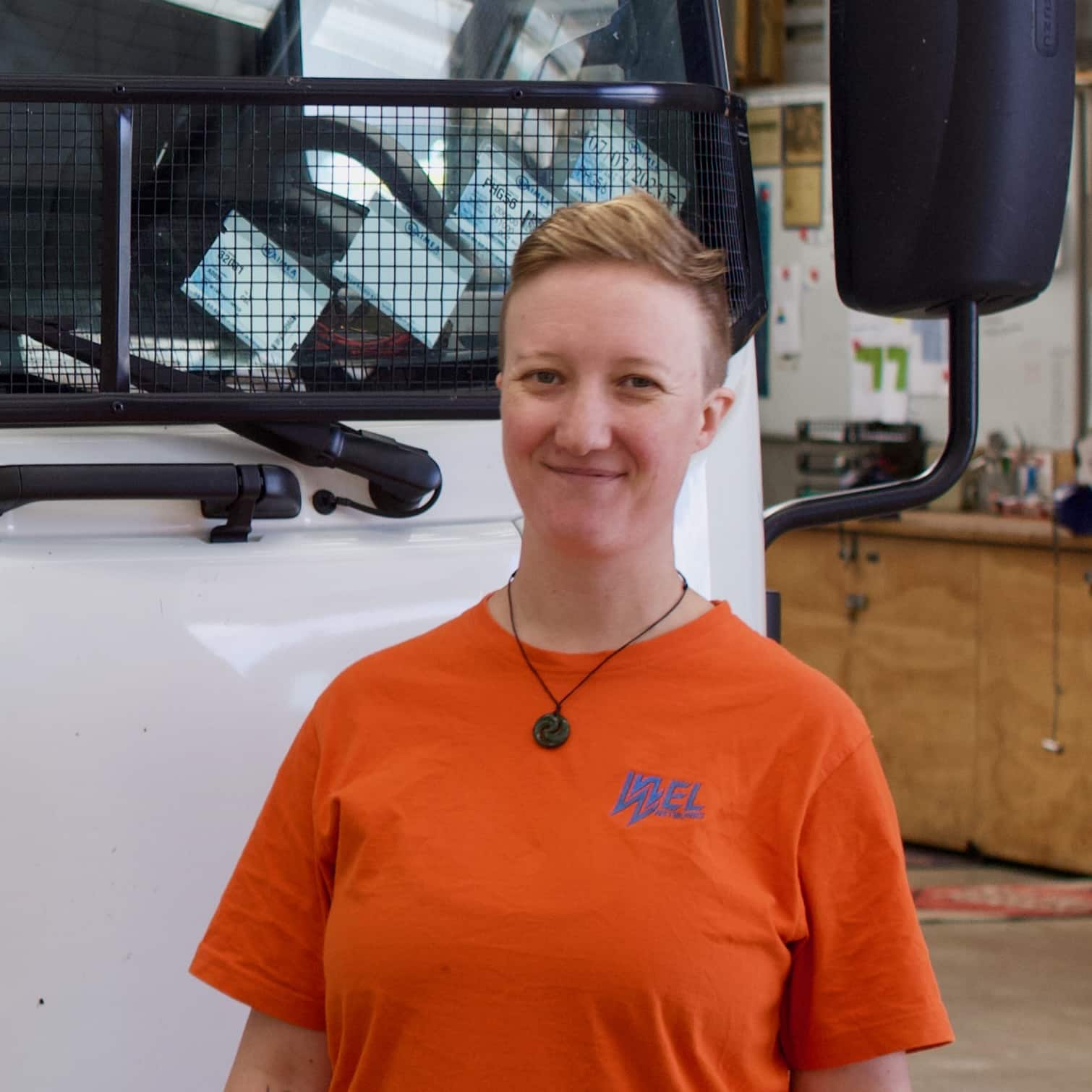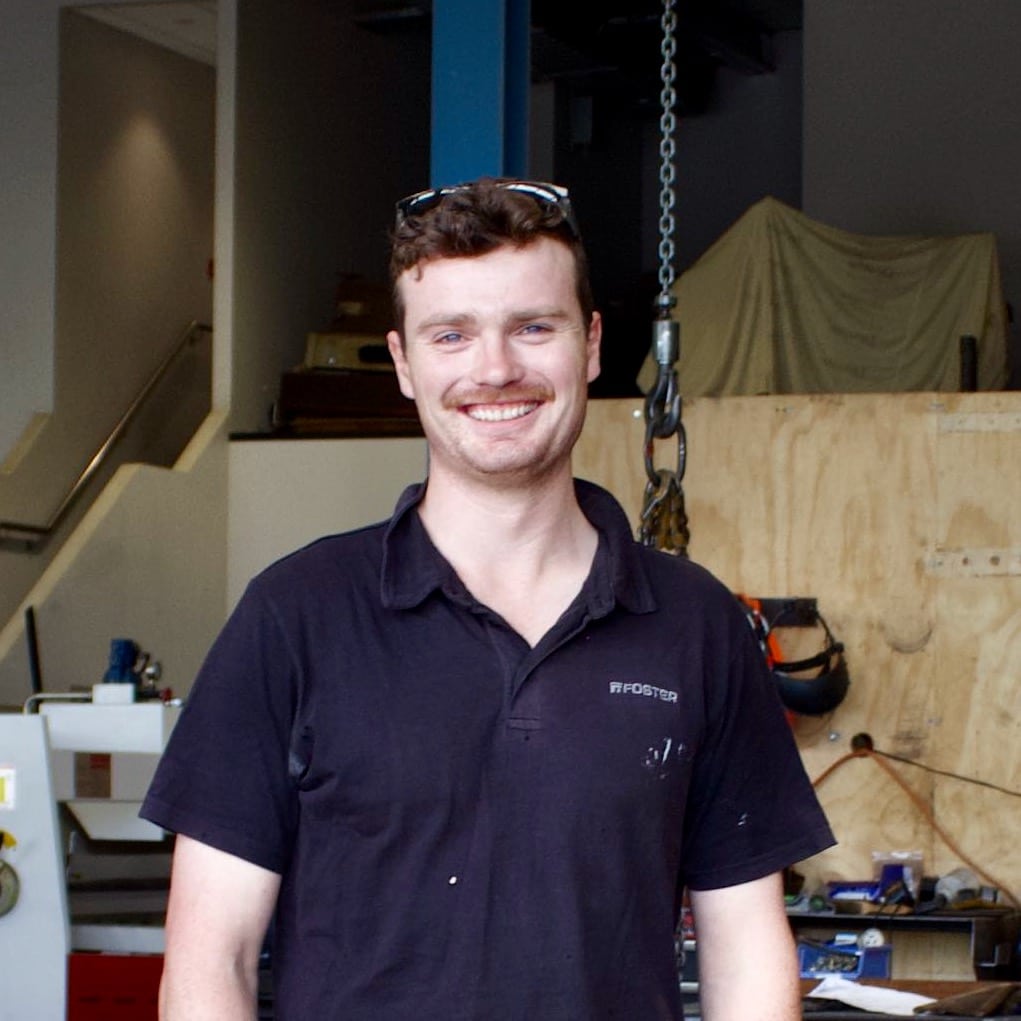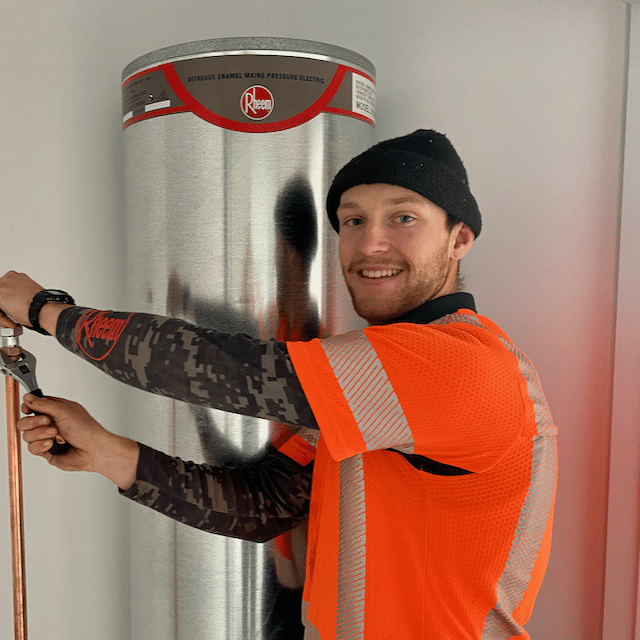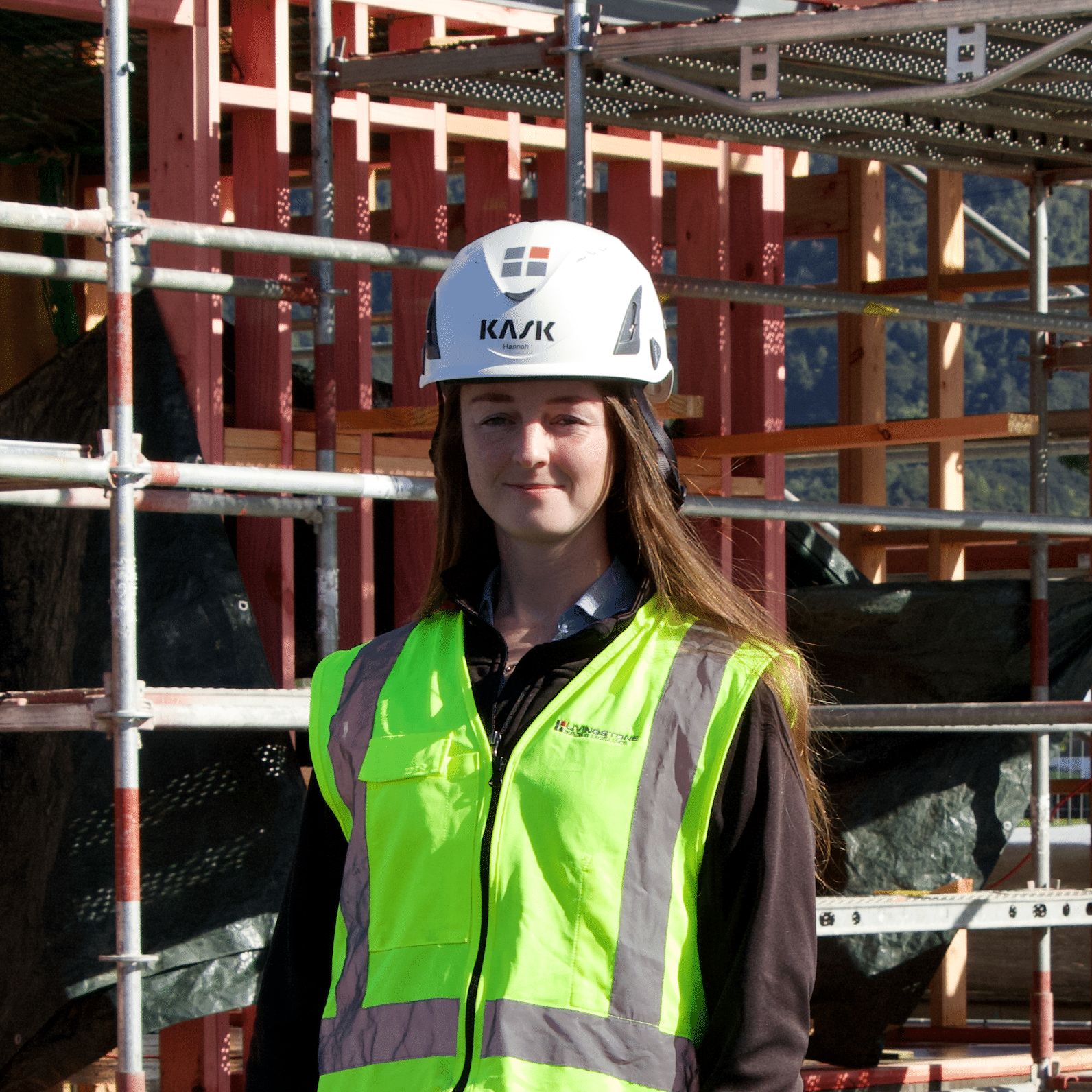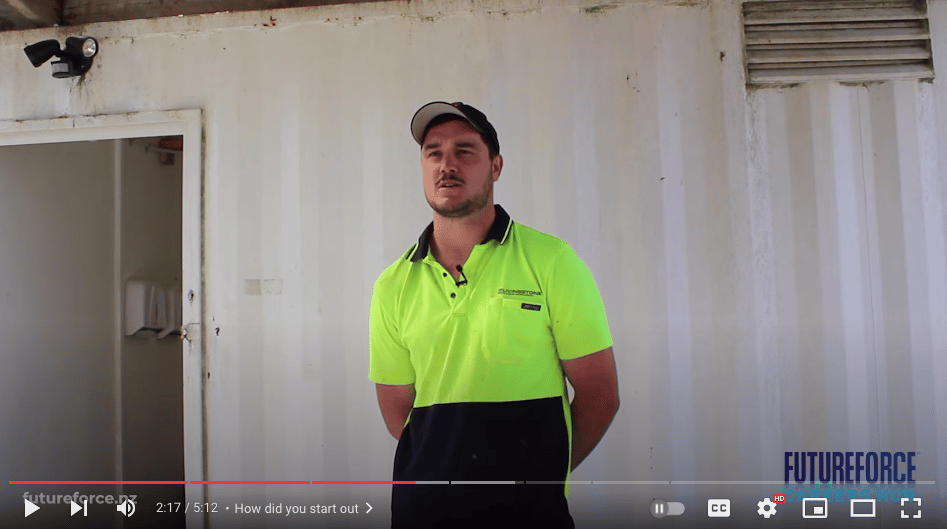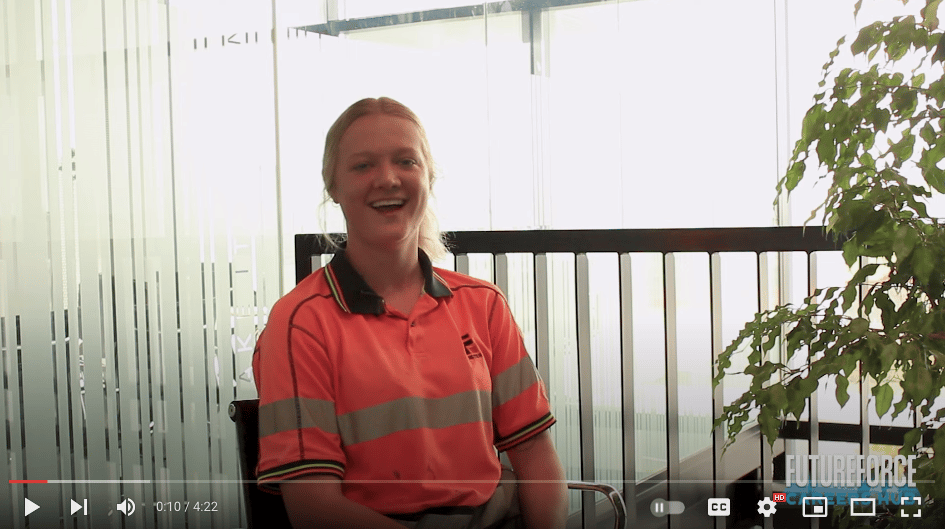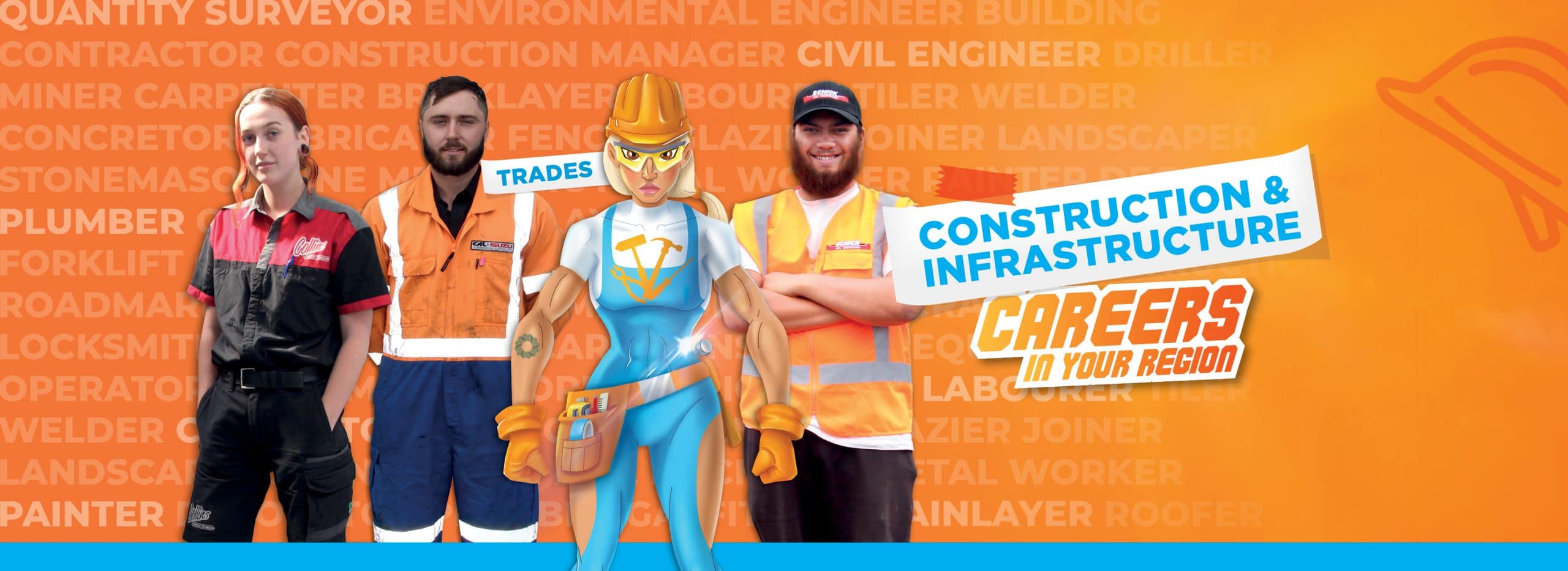
CONSTRUCTION is building anything from the ground up, including architectural services, building, plumbing, gas-fitting, electrical services, roofing, scaffolding and more.
Construction in Waikato/Bay of Plenty is forecast to increase to $7.6b by 2026, driven largely by the residential (or housing) sector, so anyone with skills in this sector – and anyone keen to enter these trades – will be in high demand.
There are more than 7000 businesses in the Construction Sector across the Waikato, and just over 30,000 jobs. The sector is forecast to be the third top growth industry for the Waikato, with 11.2% growth in the workforce forecast from 2021 to 2026. This sector also has a high self-employment rate of 24.4%, compared to the 17.5% average for Waikato. Many people with skills in a construction trade – people who start off on the tools – go on to start their own businesses. (MBIE and Infometrics Ltd. 2022)
Did you know…?
There is a strong construction pipeline in the Waikato with building consents, roading infrastructure developments and housing projects on the rise.
Investment in the construction sector increases demand for construction-related occupations and apprenticeship programmes.
INFRASTUCTURE is planning, designing, building and laying utilities for the community, including:
>> Essential services below ground
e.g. drainage, sewerage, dams, broadband
>> Services above ground
e.g. roads, tunnels, bridges, ports, pavements, electricity generation
According to Ministry of Business, Innovation and Employment, infrastructure activity is forecast to continue to increase to $10.1 billion in 2025 and Waikato is one of the regions which will contribute the most to this.
Civil Engineers are heavily involved in the infrastructure industry, find out more about Engineering in the Manufacturing and Technology Sector »
SMARTER FUTURES: ENERGY

Waikato is one of the biggest energy producers and users in New Zealand. This offers massive opportunities for the development of cleaner fuel sources and new energy innvoations such as wind and solar farms. All industries and sectors will require more clean energy which creates demand for a highly skilled workforce.
Is a job in Construction and Infrastructure right for you?
Find out!
Do you like…
- Working with your hands
- Working with tools
- Using or driving heavy equipment or machinery
- Working in a team?
Are you interested in…
- Following and developing plans
- Problem solving
- Making calculations
- Preparing estimates and quotes?
Do you have these skills?
-
-
- Technical ability
- Willingness to learn
- Safety awareness
- Team work
- Quality focus
- Adaptability
- Reliability
- Motivation
-
Sound like you? Consider becoming part of the sector building, maintaining and repairing Aotearoa from below the ground up!
Job examples and pay in the construction and infrastructure sector
| JOB | PAY PER YEAR | OPPORTUNITIES |
|---|---|---|
| Architect | $60K to $140K | Average |
| Architectural Technician | $70K to $125K | Average |
| Building and Construction Manager | $100K to $224K | Average |
| Building Surveyor | $61K to $112K | Average |
| Cabinet Maker | $48K to $60K | Average |
| Energy and Chemical Plant Operator | $70K to $180K | Average |
| Interior Designer | $55K to $120K | Average |
| Landscape Architect | $80K to $120K | Average |
| Painter/Decorator | $53K to $76K | Average |
| Project Manager | $90K to $170K | Average |
| Quantity Surveyor | $48K to $170K | Average |
| Roading Leading Hand | up to $85K | Good |
| Signmaker | $48K to $70K | Average |
| Survey Technician | $48K to $80K | Average |
| Surveyor | $90K to $110K | Average |
| Water/Wastewater Treatment Operator | $48K to $130K | Good |
| JOB | PAY PER HOUR | OPPORTUNITIES |
|---|---|---|
| Brick and Blocklayer | $23 to $60 | Average |
| Building and Construction Labourer | $23 to $40 | Average |
| Building Insulator | $23 to $30 | Average |
| Carpenter | $23 to $41 | Average |
| Concrete Worker | $25 to $30 | Average |
| Crane Operator | $23 to $70 | Average |
| Earthmoving Machine Operator | $25 to $40 | Average |
| Electrician | $34 to $43 | Average |
| Flooring Installer | $23 to $35 | Average |
| Glazier | $23 to $30 | Average |
| Joiner | $23 to $35 | Average |
| Plasterer | $23 to $30 | Average |
| Plumber/Gasfitter | $23 to $53 | Average |
| Roading Construction Worker | $23 to $24 | Good |
| Roofer | $23 to $40 | Average |
| Scaffolder | $24 to $37 | Good |
| Stonemason | $23 to $40 | Average |
| Wall/Floor Tiler | $23 to $35 | Average |
What’s your top advice for someone looking at this type of work?
“Attitude is Number One. Someone with the right attitude can learn anything!”
– Adam Findlay – GM Foster Construction – Waikato)

Becoming an Apprentice
Did you know…?
The Targeted Training and Apprenticeship Fund (TTAF; also known as free trades training) supports learners to undertake vocational education and training without fees and runs until December 2022. It is available for a range of training and apprenticeship programmes targeted towards the areas in the Construction and Infrastructure industry where employer need is strong and/or expected to grow.
Building and Construction Industry Training Organisation (BCITO) says that while the construction sector has changed considerably since COVID-19, there is still a critical shortage of skills and demand for building work continues to grow. The construction boom is forecast to be extensive and long lasting and to meet this demand, the industry will need at least 80,000 people across New Zealand in the next few years.
Do you have what it takes?
BCITO outline what it’s really like on the job as an apprentice in the Construction sector…
As an apprentice you’ll be expected to:
- start early or finish late (depending on the job)
- work on large long-term projects or small repair jobs
- travel to various job sites
- work outside and inside
- stick to deadlines
- work in noisy or dirty conditions
- work at heights or in confined spaces
- follow health and safety guidelines
- concentrate for extended periods of time
- be accurate – other tradespeople rely on your measurements or quantities
- work both on your own and as part of a team
- listen and communicate well
- be comfortable with tools and machinery
- maintain your tools
Qualifications
» Wintec
› NZ Certificate in Plumbing, Gas fitting and Drainlaying
› Construction Trade Skills (Level 3)
› Electrical Engineering (Level 3) › Carpentry (Level 4) › Mechanical Engineering (Level 3)
» ETCO – The Electrical Training Experts
› NZ Certificate in Electrical Engineering (Level 3)
› NZ Certificate in Electrical Engineering (Level 4)
ETCO
Learn more about this training provider »


Meet the Waikato young people at work in Construction and Infrastructure!
WATCH: Waikato young people in Construction and Infrastructure careers
Sources: careers.govt.nz, bcito.org. mbie.govt.nz, stats.govt.nz, waikato.com
Disclaimer: While the FutureForce® Team makes every effort to ensure the information on this website is correct, the editor and publisher do not assume and hereby disclaim any liability to any party for any disruption or loss caused by error or omissions. Content is designed to complement, but not replace, the advice of a career advisor.

